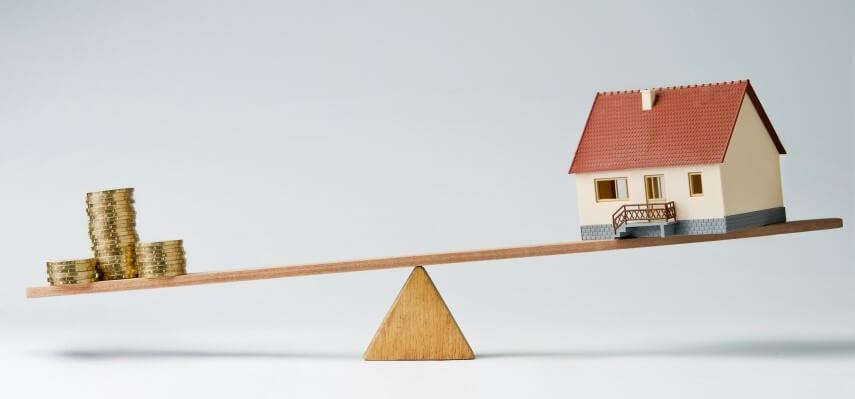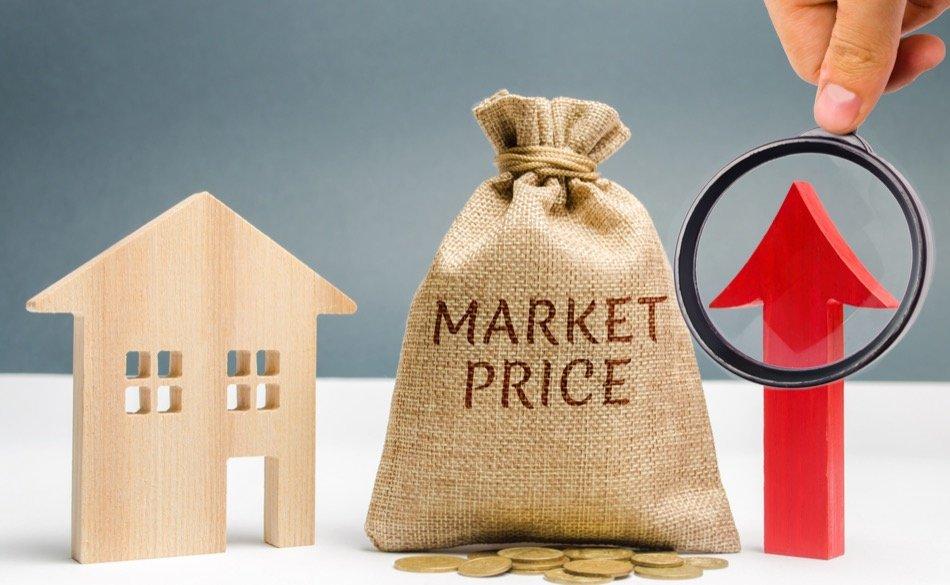




Table of Contents
- Introduction
- Why Overpricing Your Home Is Risky
- Things to Consider Before Pricing Your Home
- Conclusion
- Faq's
Introduction
Setting the right price for your home is one of the most critical decisions when selling a property. Many homeowners, driven by emotional attachment or the desire for higher returns, tend to overprice their homes. While this might seem like a strategy to maximize profits, it often backfires.
Overpricing can lead to longer listing times, fewer interested buyers, and eventual price reductions, which can harm your home's market perception. In this article, we'll discuss the risks of overpricing your home, why it's important to set a realistic price, and the key factors to consider before listing your property.
 Overpricing Your Home
Overpricing Your Home
Why Overpricing Your Home Is Risky
1. Reduced Buyer Interest
Buyers today are highly informed and have access to online property listings and market analysis tools. They can easily compare your home's price to similar properties in the area. If your home is overpriced, it may not even appear in their filtered searches, and they may skip viewing it entirely. This significantly narrows your pool of potential buyers, reducing the chances of getting a good offer.
2. Longer Time on the Market
When a property is priced higher than its market value, it tends to sit unsold for an extended period. Listings that remain unsold for too long can develop a "stale" reputation. Potential buyers may start to wonder if there's something wrong with the property, which leads to fewer showings and a decreased likelihood of receiving fair offers.
3. Price Reductions Hurt Credibility
To compensate for lack of interest, sellers often resort to lowering the asking price after several weeks or months. This practice of multiple price drops can harm your property's credibility. Buyers might perceive the reductions as a sign of desperation, causing them to negotiate aggressively or submit lowball offers.
4. Missed Opportunities with Serious Buyers
Serious buyers who are ready to close a deal tend to focus on properties that align with their budget and market trends. Overpriced homes often get ignored because buyers may assume the seller is unwilling to negotiate or out of touch with the market. This means you could miss out on attracting motivated and qualified buyers.
5. Costly Carrying Expenses
Every additional month your property stays on the market translates to extra costs for you. These expenses could include mortgage payments, property taxes, utility bills, maintenance costs, and homeowners' association fees. By overpricing your home, you risk extending the time it takes to sell, which directly impacts your finances.
6. Impact on Neighboring Properties
If your home is significantly overpriced compared to similar properties in the neighborhood, it can create a distorted market perception. Neighboring homes, which are priced correctly, may appear as better deals to buyers. This inadvertently helps competing listings while leaving your property overlooked.
7. Emotional Stress
Overpricing often results in frustration and stress for sellers. Watching your property linger on the market without offers, negotiating with buyers over price reductions, and dealing with carrying costs can take an emotional toll. It's important to approach pricing with realistic expectations to minimize this stress.
Things to Consider Before Pricing Your Home
- Research the Market Thoroughly: A deep understanding of the local real estate market is critical. Review recently sold properties in your area, particularly homes that are similar in size, location, and condition. This data can provide valuable insight into the fair market value of your property and help you set a realistic price.
- Get a Professional Appraisal: Hiring a certified appraiser can offer an objective evaluation of your home's worth. Appraisers assess factors like the property's size, condition, upgrades, and comparable sales in the area. Their report can serve as a reliable benchmark for pricing your home competitively.
- Consult an Experienced Real Estate Agent: Real estate agents have access to market data and years of experience that can guide your pricing strategy. They can perform a comparative market analysis (CMA) to suggest a price range that aligns with market conditions and buyer expectations, ensuring you attract the right audience.
- Avoid Emotional Pricing: It's common for homeowners to attach sentimental value to their property, but this can lead to unrealistic pricing. Understand that buyers are focused on market value, not your personal connection to the home. Be objective and consider what buyers will view as fair.
- Evaluate Local Demand and Supply Dynamics: The pricing strategy should reflect current market conditions. In a buyer's market (where supply exceeds demand), setting a competitive price is essential to stand out. In a seller's market (where demand exceeds supply), you may have slightly more room to price higher, but it's still crucial to stay within reasonable limits.
- Factor in Your Timeline: If you're in a hurry to sell, pricing your home competitively is vital to attract buyers quickly. However, if you're not in a rush, you can afford to wait for the right buyer, though this approach still requires you to avoid overpricing.
- Account for Upgrades and Unique Features: If your home has undergone significant renovations or boasts unique features (such as energy-efficient systems or a prime location), these can justify a slightly higher price. However, ensure that the added value aligns with what buyers in your area are willing to pay for those upgrades.
- Understand Buyer Psychology: Buyers often have a price range in mind and are drawn to properties they perceive as offering value. Pricing your home slightly below a major price threshold (e.g., ₹49,99,000 instead of ₹50,00,000) can create a sense of affordability and attract more attention.
- Leave Room for Negotiation: It's common for buyers to negotiate. Pricing your home with a small margin for negotiation can make buyers feel like they're getting a deal, which can lead to faster sales. However, this margin should not be so high that it deters buyers from considering your home.
- Review Feedback Regularly: If your home has been listed for a while without offers, consider feedback from real estate agents and buyers who have toured your property. Their insights can help you adjust the price or marketing strategy to attract more interest.
Conclusion
Overpricing your home may seem like a way to maximize profits, but it often leads to missed opportunities, prolonged selling timelines, and financial stress. Setting a realistic and competitive price not only attracts serious buyers but also ensures a smoother transaction process. By researching the market, consulting professionals, and understanding buyer expectations, you can price your home effectively and achieve a successful sale. Remember, the key to selling your home quickly and profitably is finding the right balance between value and market demand.
 Market Valuation Of Homes
Market Valuation Of Homes
explore further
Latest from Home Buying Tips
More from Recommendations
Resources
Dwello, for every home buyer, is a way to go from 'I feel' to 'I know', at no extra cost.




